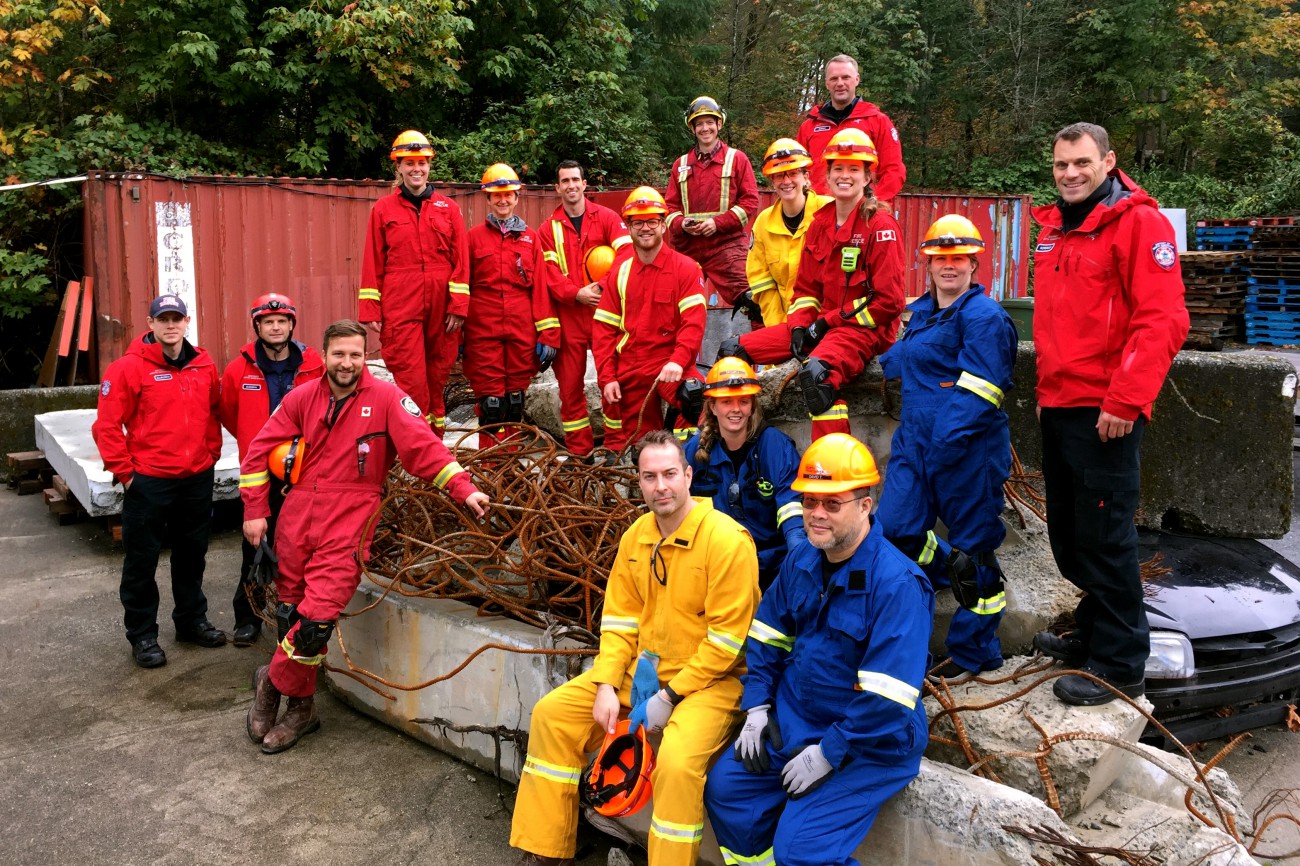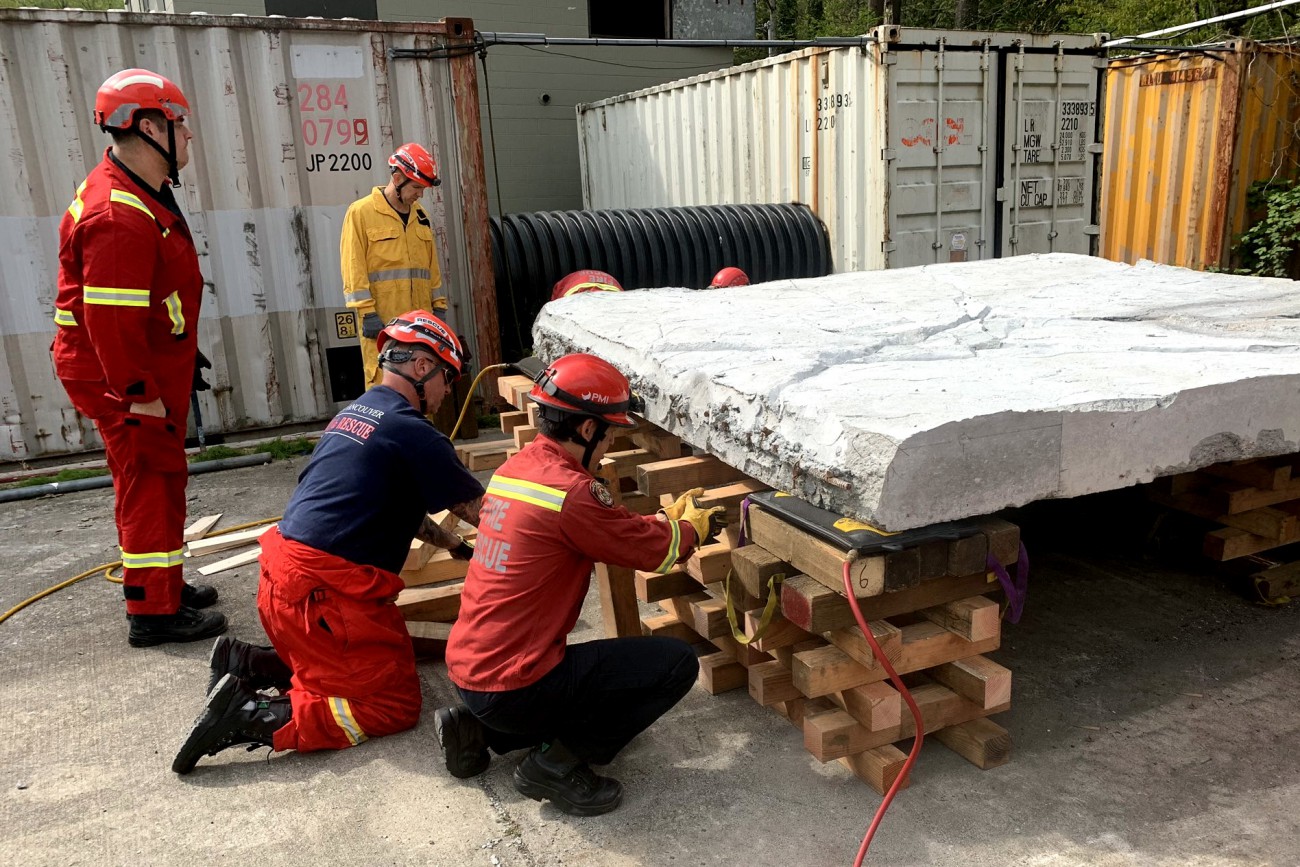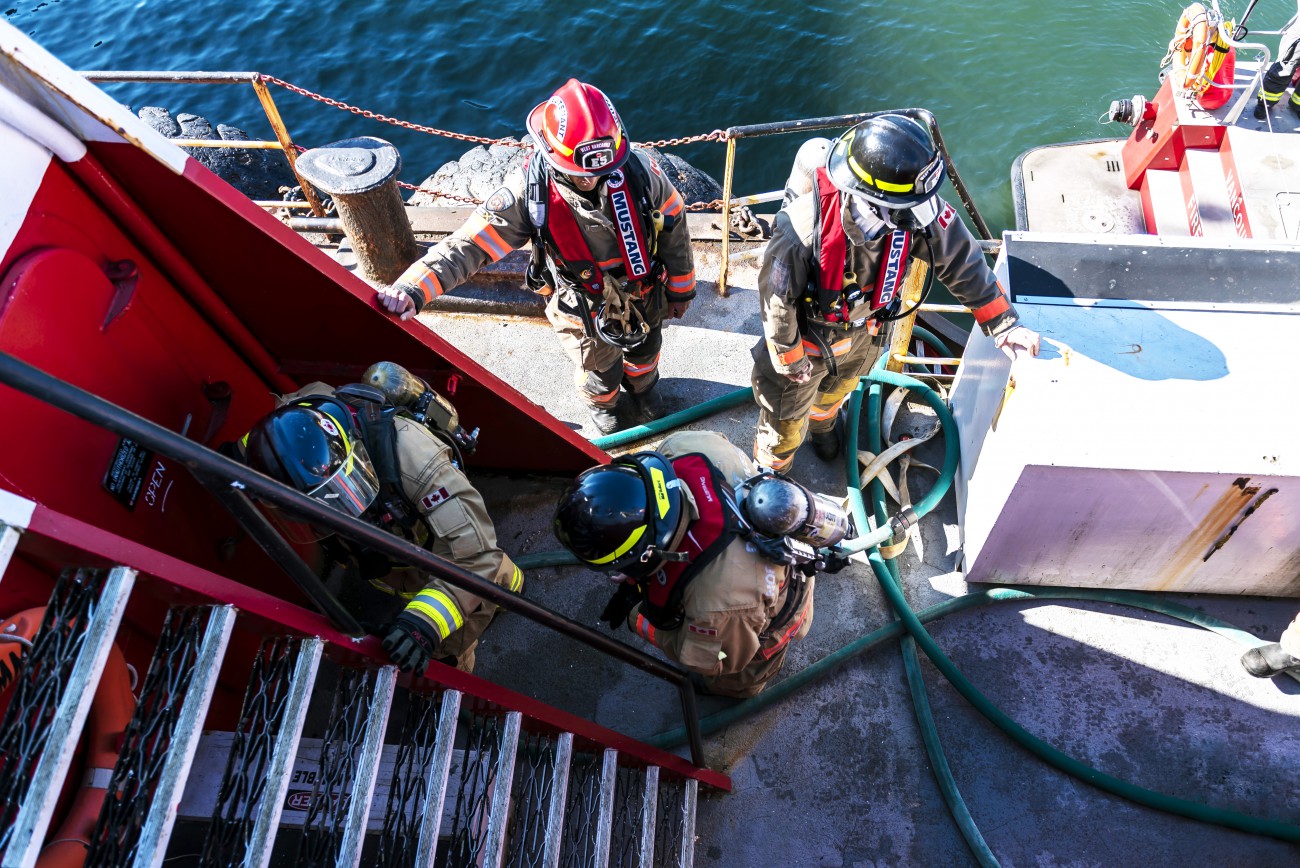Planning for emergencies
Helping prepare for, respond to, and recover from major North Shore wide emergencies is a significant focus of our fire and rescue service.
From developing a team to help us strengthen our response to local natural hazards/emergencies and facilitate speedy community recovery, to participating in rigorous emergency preparedness exercises designed to recreate real-life emergencies, we significantly increased our capacity in 2019 to deal with major emergencies.
North Shore Emergency Management
We work closely with North Shore Emergency Management (NSEM) — an inter-municipal agency providing emergency management services to all three municipalities on the North Shore — on training initiatives and disaster relief exercises that emulate real life response to scenarios such as urban interface fires, earthquakes, floods, and other emergencies.
NSEM is a valued partner agency that also supports the Disaster Emergency Readiness Training (DERT) program, which aims to improve the operational resiliency of the District of North Vancouver in the event of large scale emergencies. You can learn more about the work that North Shore Emergency Management does for North Shore Communities on their website.
 35-Member Extended Operations Unit
35-Member Extended Operations Unit
We established the District of North Vancouver Extended Operations Unit (EOU) in 2018 to strengthen response to local, naturally occurring emergencies, increase community resiliency, and facilitate swift recovery from a natural disaster.
Consisting of District of North Vancouver employees — many of whom already have relevant skills and experience from their ‘day’ jobs (arborists, heavy equipment operators, and so on) — the 35-member team will be activated to help support the Fire and Rescue team during earthquakes, landslides, floods, wildfires, and other natural disasters.
During large or significant naturally occurring emergencies, this group of trained staff will augment the capacity of Fire and Rescue, enhancing our capacity and capability to mitigate incidents.
EOU Training in 2019
Members participated in the following training opportunities to enhance skills and knowledge in regards to emergency response.
WILDFIRE BASIC FIRE SUPPRESSION (S-100) AND SAFETY AND WILDFIRE ENTRAPMENT AVOIDANCE AND SAFETY (S-185)
Official wildfire training courses by the Province of BC.
DISASTER EMERGENCY RESPONSE TRAINING
Focusing on light urban search and rescue and basic emergency first aid.
DRY LIGHTNING III
Tri-municipal and interagency emergency wildfire response training alongside BC Wildfire Service, Royal Canadian Mounted Police, North Shore Emergency Management, District of North Vancouver Parks, Metro Vancouver, and Talon Helicopters.
- Phase 1 – Practicing evacuation notification procedures in response to a wildfire threat
- Phase 2 – Performing Interagency coordination and communication during a wildfire emergency
EXERCISE ANNONA
Post disaster relief and logistics exercise at Cates Park with District of North Vancouver Fire & Rescue, North Shore Emergency Management, and other partners and emergency response agencies from across the Lower Mainland, including Tsleil-Waututh Nation, Canadian Coast Guard, Royal Canadian Marine Search and Rescue, Vancouver Police Department, Canada Task Force 2, and more.
Major Emergency Operations Plan
We are part of an annual tri-municipal training initiative that prepares us to respond to large scale incidents that result in the failure of critical infrastructure, communications, and supply chains.
The Major Emergency Operations Plan (MEOP) was produced as a result of the District's Earthquake Ready Action Plan, which is designed to strengthen our earthquake resiliency in four key areas — mitigation, preparedness, response, and recovery — by focusing on the people, buildings, infrastructure, and systems that are most vulnerable.
Each year, the plan is reviewed and tested annually by all three municipalities during field exercises that replicate a post-disaster environment when all resources are overwhelmed.
In 2019, 81 staff and 14 pieces of apparatus from all three North Shore fire departments were involved in the exercise each day – over the course of four days – with a total of 324 participants overall. During the test, crews went into the field during a simulated earthquake to review the structural integrity of District bridges, roadways, and other infrastructure, and report back on their findings.
The test also incorporated a simulated activation of the Department Operations Centre (DOC), which is used to coordinate response activities, gather intelligence, provide logistical and operations support, and maintain a chronological report of incidents and status updates in the event of an emergency.
The timing of the field exercise aligns with the annual Great BC ShakeOut earthquake drill to coordinate the District's earthquake initiatives with provincial efforts.
Read the Earthquake Ready Action Plan
 Urban Search and Rescue
Urban Search and Rescue
Urban Search and Rescue provides critical resources and a specially trained task force of personnel with medical, fire suppression, emergency response, search and rescue, and engineering backgrounds.
Teams deploy with trained dogs, electronic search equipment, and heavy construction equipment, to remove debris and help extract people trapped in major structural collapses during naturally occurring emergencies such as earthquakes.
Our members regularly attend monthly training sessions alongside Canada Task Force (CANTF-1) members to build on our collaborative efforts.
Working with our two North Shore fire service partners, we continue long-term planning to develop an integrated Urban Search and Rescue Team on the North Shore.
 Marine Firefighting Response
Marine Firefighting Response
We are active partners alongside West Vancouver Fire & Rescue, North Vancouver City Fire Department, and Vancouver Fire & Rescue when responding to marine emergencies.
Over the past year, 60 North Shore firefighters received training to prepare for, respond to, and recover from a number of emergencies that can occur on the water, including 40 members from the District of North Vancouver Fire & Rescue Services.
Three training programs were delivered by the Justice Institute of British Columbia (JIBC) and hosted by our partners at Seaspan Vancouver Shipyards.
The programs are a model of interagency collaboration, with the following agencies actively participating in each session:
- Royal Canadian Marine Search and Rescue (RCMSAR)
- Royal Canadian Mounted Police Marine Unit
- Vancouver Fire & Rescue Services Fireboat
- Vancouver Police Department Marine Unit
- Port of Vancouver
